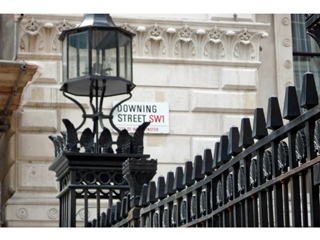
The reversal comes just 10 days after the plan was announced in Kwasi Kwarteng’s Mini Budget.
The plan to scrap the additional income tax threshold has been scrapped, according to a Twitter post from Kwasi Kwarteng, Chancellor of the Exchequer.
“It is clear that the abolition of the 45p tax rate was becoming a distraction from our overriding mission to tackle the challenges facing our country,” Kwarteng said in his Twitter post.
“As a result, I’m announcing we are not proceeding with the abolition of the 45p tax rate. We get it, we have listened,” he continued.
The additional income tax threshold is set out for individuals earning £150,000 or more every year. This income is taxed at 45%, but the Government announced it would scrap this in its Mini Budget 10 days earlier.
These earners would therefore pay the higher income rate of 40% and would see a Personal Savings Allowance of £500 when the changes came into effect in April.
Prime Minister Liz Truss also responded to the decision on Twitter, saying that the Government’s focus is now on growing the economy.
After Kwarteng’s announcement the pound saw a brief rally, rising to $1.12.
Last week, the pound hit a new low against the dollar in reaction to the Mini Budget speech. This had a ripple effect which saw many lenders remove their mortgages from the market.
However, despite gaining some momentum today, the pound is down by more than 17% against the dollar since the beginning of the year.
This has added further inflationary worries to the economy, and has hit British importers hard, according to interactive investor, an investment platform.
Meanwhile, UK gilts also strengthened briefly.
“The benchmark 10-year UK gilt yield has dropped by 10 basis points, to 4%, from 4.1% on Friday night,” said Graeme Wearden, a journalist at The Guardian.
This also comes after a major sell-off in the gilt market last week. As a result, the Bank of England (BoE) intervened by purchasing long-term Government bonds to protect the value of the pound.
“The dysfunction in the bond market has forced the Bank of England to carry out conflicting policies; one to stem inflation and another to avoid financial contagion,” said Victoria Scholar, Head of Investment, interactive investor.
She concluded that these conflicting policies employed by the BoE have encapsulated the current volatile UK market conditions.
Information is correct as of the date of publication (shown at the top of this article). Any products featured may be withdrawn by their provider or changed at any time. Links to third parties on this page are paid for by the third party. You can find out more about the individual products by visiting their site. Moneyfactscompare.co.uk will receive a small payment if you use their services after you click through to their site. All information is subject to change without notice. Please check all terms before making any decisions. This information is intended solely to provide guidance and is not financial advice. Moneyfacts will not be liable for any loss arising from your use or reliance on this information. If you are in any doubt, Moneyfacts recommends you obtain independent financial advice.